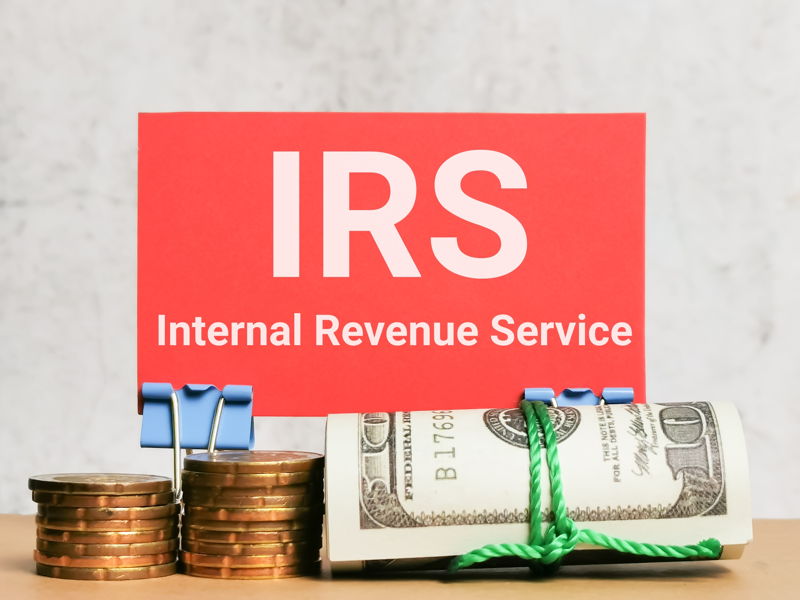IRS audits can be difficult, often leaving individuals wondering where they might have gone wrong. However, there’s a process in place for those who wish to challenge the findings of an audit.
The IRS Audit Reconsideration Request is a valuable tool for taxpayers who believe the IRS’s assessment of their returns, leading to increased tax liabilities, may have been incorrect. This process grants you the right to dispute the audit’s conclusions and seek a review. Through an audit reconsideration, the IRS takes another, more detailed look at your case to determine the accuracy of the initial findings.
It’s important to understand that while you are accountable to the government, you also have the right to question its decisions. This challenge comes in the form of a request.
To initiate an audit reconsideration, it’s necessary to submit a formal written request to the IRS detailing why you believe the initial audit was flawed, accompanied by any supporting documents you can provide. It’s crucial to recognize that an audit reconsideration is distinct from a formal appeal. But, what exactly does this process entail?
A Guide to IRS Audit Reconsideration
IRS Audit Reconsideration is a process the Internal Revenue Service offers for taxpayers who disagree with their audit outcomes. It’s essentially a second review of your tax return if you have new evidence or believe there was an error in the initial audit.
The main goal is to ensure fairness and accuracy in tax assessments. This process allows taxpayers to present new information or dispute errors without resorting to formal appeals.
Who can benefit?
Individuals and businesses who are questioning their audit results.
Taxpayers who have discovered new evidence that was not considered during their original audit.
Anyone who believes there was a mistake in how their audit was conducted.
Why does it matter?
Audit reconsideration is critical for ensuring that your tax liabilities accurately reflect your financial situation. It provides a path to correct inaccuracies and update tax records based on new or previously overlooked information.
The process aims to rectify any inaccuracies, ensuring that your tax assessment is fair and accurate. It’s a step towards straightforwardly resolving disputes, offering taxpayers peace of mind.
Let’s say you have received a Notice of Intent to Levy. Thus, if you receive a Notice of Intent to Levy due to unresolved tax issues, pursuing audit reconsideration may be a proactive step to challenge the IRS’s assessment and prevent further enforcement actions.
To understand better, let’s explore the specific requirements that allow taxpayers to seek audit reconsideration.
IRS Reconsideration Requirements
Please note that submitting a reconsideration request does not guarantee that it will be reviewed or accepted. The IRS has established specific criteria that need to be met for your request to be taken into consideration:
- A tax return for the relevant year must have been submitted.
- The assessed tax should still be outstanding, or you must be contesting tax credits that the IRS has denied.
- Specify which adjustments from the initial assessment you are challenging.
- Submit new evidence or information that was not evaluated during the first review.
- Indicate if a mistake in calculation or processing by the IRS affected the determined tax amount.
Circumstances under which Taxpayers may Request Audit Reconsideration
Taxpayers might find themselves in various situations where requesting an audit reconsideration is beneficial. These include:
- Missed Audit Appointments: If you could not attend your scheduled audit meeting, audit reconsideration provides a second chance to present your case and any relevant documentation.
- Notice CP49 Trigger: Receiving Notice CP49 from the IRS indicating a discrepancy in your tax return could prompt you to initiate an audit reconsideration request to rectify any errors or inaccuracies.
- New Documentation or Evidence: This is crucial if you’ve discovered additional information or documents that weren’t initially presented or considered during your audit. Such new evidence could significantly impact the outcome of your case.
- Disagreements with IRS Interpretations: Sometimes, you might believe that the IRS has incorrectly interpreted the tax laws or applied them improperly to your situation. If you think there’s been a legal or factual error, reconsideration allows you to argue your perspective.
- Errors in Tax Liability Calculations: If you identify mistakes in how your tax liability was calculated, requesting a reconsideration can lead to corrections, potentially reducing the amount owed.
Requesting IRS Audit Reconsideration: A Step-by-Step Guide
For your IRS audit reconsideration request to be considered, it’s crucial to prepare your submission meticulously. Follow these steps to enhance the likelihood of acceptance by the Internal Revenue Service:
- Analyze the audit report and assemble the required documentation.
Upon receiving the initial audit report from the IRS, which outlines their findings, carefully review it to identify the specific areas you wish to challenge. This review will guide you in collecting the necessary documents to support your request.
It’s essential that the evidence you submit is new and pertains directly to the tax year under review. Should you settle the assessed amount in full and seek a refund, you must lodge a formal amendment using Form 1040X, rather than pursuing reconsideration. - Forward Documentation to the IRS
Compile and send all pertinent paperwork to the IRS, including a copy of the audit report and the documents supporting your challenge. This packet may encompass Forms 1099, bank records, loan agreements, etc.
Ensure to also resend any documents previously submitted to the IRS during the audit. Accompany these with a written letter detailing your reasons for requesting reconsideration, which can be done through IRS Form 12661 or a straightforward letter. - Utilize IRS Form 12661
Form 12661 serves as the formal template for taxpayers to outline their reasons for seeking audit reconsideration. A concise letter addressing the same points is also acceptable if you prefer not to use this form.
When filling out Form 12661, include detailed information about your case, specifically highlighting which audit findings you dispute and why. - Include IRS Form 4549
IRS Form 4549, or the Income Tax Examination Changes letter, summarizes the IRS’s proposed adjustments to your tax return, including any additional penalties and interest. Submitting a copy of this form with your reconsideration request helps clarify the adjustments you are contesting.
Duration of the Audit Reconsideration Process
After submitting your audit reconsideration request, typically, the IRS will respond within 30 days. However, it’s common for responses to take longer, possibly even several months.
To speed up the process, consider contacting the Taxpayer Advocate’s Office. Complete and submit Form 911, titled “Request for Taxpayer Advocate Assistance,” to request expedited handling of your case.
Should the IRS deny your reconsideration request, or if you fail to provide requested additional information within 30 days, they may resume collection activities following their final decision.
If your reconsideration is approved, the IRS may cancel or reduce the additional tax assessment.
Disagreeing with the Reconsideration Outcome:
- You have the option to request a conference with the Appeals Office.
- You can pay the assessed amount in full and submit a formal claim afterward.
- If you choose not to take any action, the IRS will issue a bill for the amount owed.
IRS Audit Letter Sample
Below is a sample template for requesting an IRS Audit Reconsideration:
[Your Firm’s Name]
[Your Firm’s Address]
[City, State, Zip]
Phone: [Your Firm’s Phone Number]
Email: [Your Firm’s Email Address]
[Date]
Fresno Campus
Internal Revenue Service
P.O. Box 12067, Stop 82206
Fresno, CA 93776
Phone: 1-866-897-0177
Subject: Audit Reassessment Request – [Client’s Name] (SSN: 859-XX-XXXX)
Tax Periods: December 31, 2017, and December 31, 2018
Respected Sir or Madam,
I write to seek a reassessment of the audit for [Client’s Name], particularly regarding the notice of changes from the examination issued on May 31, 2018, for the tax years ending December 31, 2017, and December 31, 2018. Our issue concerns adjustments made to Schedule C1 – Expenses of Goods Sold, which total an amount of $198,500.00 ($78,200 for 2017 and $120,300 for 2018).
Our dispute centers on denying specific costs, notably office supplies, catering expenses, client entertainment, and payments to freelance designers. We maintain that these costs constitute valid business expenses that were improperly disallowed in the initial review.
Enclosed with this letter, you will find exhaustive monthly records for the years 2017 and 2018, detailing expenditures for office supplies, catering, and client entertainment, along with all associated receipts. These documents refute the auditor’s claim that these costs were exaggerated, and they provide substantial proof of their validity.
Furthermore, this package contains detailed cash receipts and summaries for the two years in question, totaling $125,400.00, allocated for freelance designer payments. This evidence further validates the accuracy of the reported figures.
In the spirit of openness, we submit this application for audit reassessment along with the necessary supporting documentation for our appeal. We trust that this additional data merits a revision of [Client’s Name]’s financial obligations for the specified tax years.
Should you need further information or additional documents, please feel free to reach out to me directly at [Your Firm’s Phone Number] or via email at [Your Firm’s Email Address]. We are committed to a constructive resolution of this matter and anticipate a favorable review of [Client’s Name]’s situation.
Thank you for your time and consideration of this request.
Sincerely,
[Your Name, Esq.]
On Behalf of [Your Firm’s Name]
Tips for a Successful Audit Reconsideration!
To enhance the likelihood of a favorable outcome from your IRS audit reconsideration request, consider these practical tips:
Seek professional help
Seeking guidance from an IRS tax consultant like Michael Sullivan and his team can help ensure that your documentation is thorough and organized, potentially increasing the effectiveness of your reconsideration request. They can assist you with:
- Prepare and review your documentation to ensure it meets IRS standards.
- Craft a persuasive reconsideration letter that clearly states your case.
- Offer guidance on tax laws and regulations relevant to your situation.
Be Thorough and Organized
- The clarity and completeness of your submission are critical. Ensure that you:
- Include all the necessary documentation and evidence to support your case.
- Organize your documents needed for IRS audit clearly and logically, making it easy for the IRS to understand your argument.
- Detail every discrepancy you’re challenging, backed by solid evidence and a clear explanation of how the evidence supports your position.
Be Patient and Persistent
- The reconsideration process can be lengthy, so patience is essential. Remember to:
- Allow ample time for the IRS to review your request. This can take several months.
- Keep track of all communications with the IRS, including dates and details of conversations.
- Follow up if you haven’t received a response within the expected timeframe, but give the IRS reasonable time to process your request.
End Note!
The IRS reserves the right to audit if they detect discrepancies or errors in your tax return.
However, if you believe there has been a mistake or if you possess new evidence that contradicts the IRS’s findings, you have the option to challenge their decision through the IRS Audit Reconsideration process. This method allows you to request a review of your case, presenting new information to support your position.
While dealing with this process may not be easy, pursuing it could be a worthwhile step if you are confident in the evidence you have. If you find yourself in such a situation, it’s advisable to consider moving forward with the reconsideration request.
Frequently Asked Questions
IRS audit reconsideration is a process you can use when you believe the IRS made a mistake during an audit. It gives you the chance to present new information or explain why you disagree with the audit results.
You can request audit reconsideration if:
- You didn’t show up for your original audit
- You have new documents or information that wasn’t reviewed before
- You believe there was an error in how the IRS applied the tax law
- You still owe the tax balance that resulted from the audit
You’ll need to submit a formal request to the IRS, either using IRS Form 12661 or by writing an IRS audit reconsideration letter. Here’s how to start:
- Review your audit report carefully
- Gather new or missing documentation to support your case
- Write a letter or fill out the form explaining what you’re disputing and why
- Include a copy of IRS Form 4549 if you have it (this shows the IRS’s changes)
- Mail everything to the IRS office that handled your audit
If you’re unsure how to begin, Mr. Michael Sullivan, former IRS agent and founder of the firm, can guide you through the entire audit reconsideration process.
Here’s what to include in your audit reconsideration submission:
- New or updated financial documents (like W-2s, 1099s, bank statements, receipts)
- A written explanation or an IRS reconsideration letter sample stating your reasons for disagreement
- A copy of the audit report and any IRS notices you received
- IRS Form 12661, if you choose to use the form instead of writing a letter
- IRS Form 4549, if available, showing what changes the IRS made
Being organized and clear with your documents is key to getting your request reviewed.
On average, the IRS takes about 30 days to several months to process an audit reconsideration request. The timeline depends on the complexity of your case and whether they ask for more information.
If your case feels stuck or you need faster help, Mr. Michael Sullivan and his team can contact the IRS or the Taxpayer Advocate Service on your behalf to move things along.
Yes, absolutely. If you didn’t respond to your audit notice in time or missed your audit appointment, you can still use IRS audit reconsideration to reopen the case.
This gives you another opportunity to provide documents and explain your side. It’s especially helpful if you now have the evidence that was missing before.
If the IRS denies your request, here are your next steps:
- You can request an Appeals Office conference to continue disputing the result
- You can pay the tax in full and then file a formal refund claim
- Or you can choose not to take further action, but the IRS will resume collections
If you get a denial, don’t panic. Mr. Michael Sullivan has helped thousands of taxpayers in this exact situation. He can help you understand your options and take the next best step for your case.
Yes. Dealing with the IRS isn’t easy, especially when you’re trying to reverse an audit outcome. Having a tax expert on your side can make a big difference.
Mr. Michael Sullivan, a former IRS agent and teaching instructor, is one of the most experienced professionals in the country when it comes to audit reconsideration. He and his team can:
- Prepare your documents the right way
- Draft a strong IRS audit reconsideration letter
- Make sure your request is complete and clear
- Communicate directly with the IRS to defend your case








